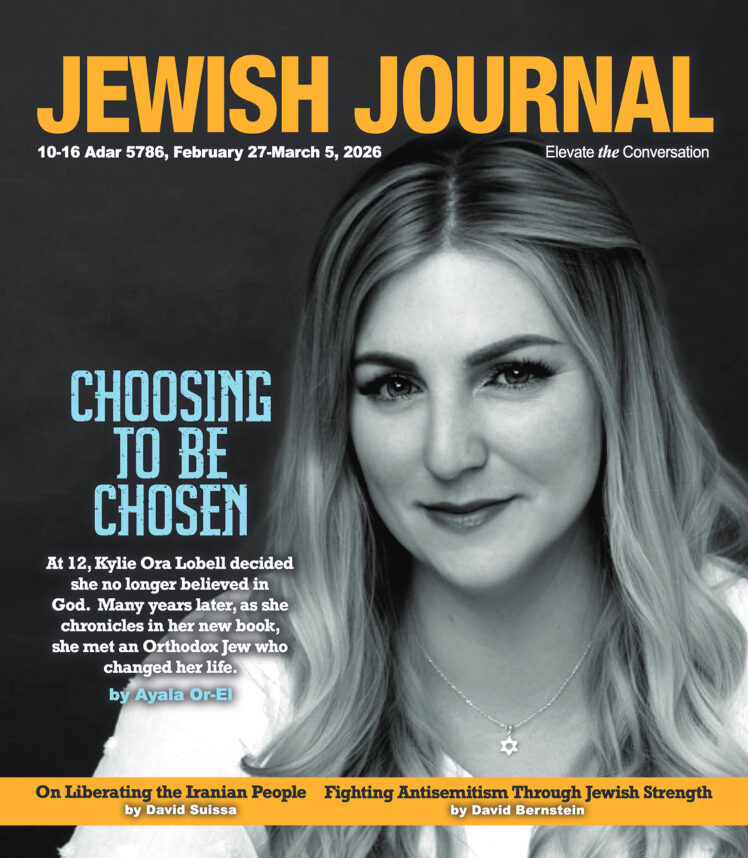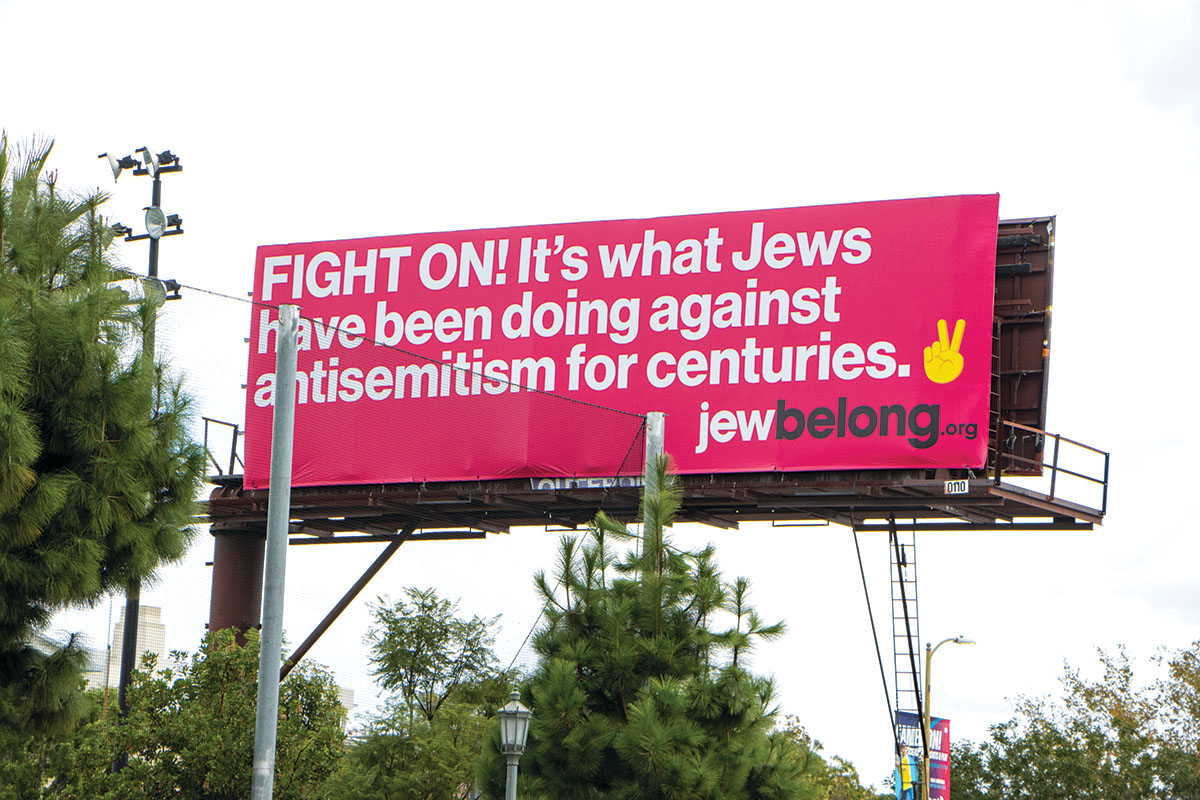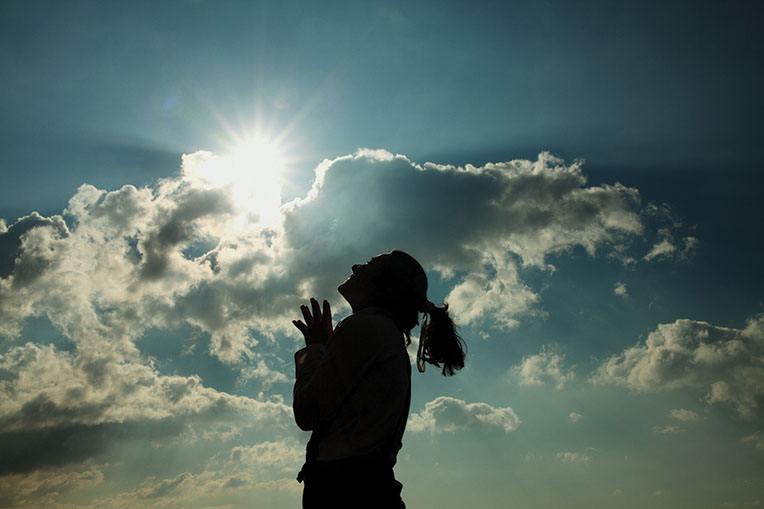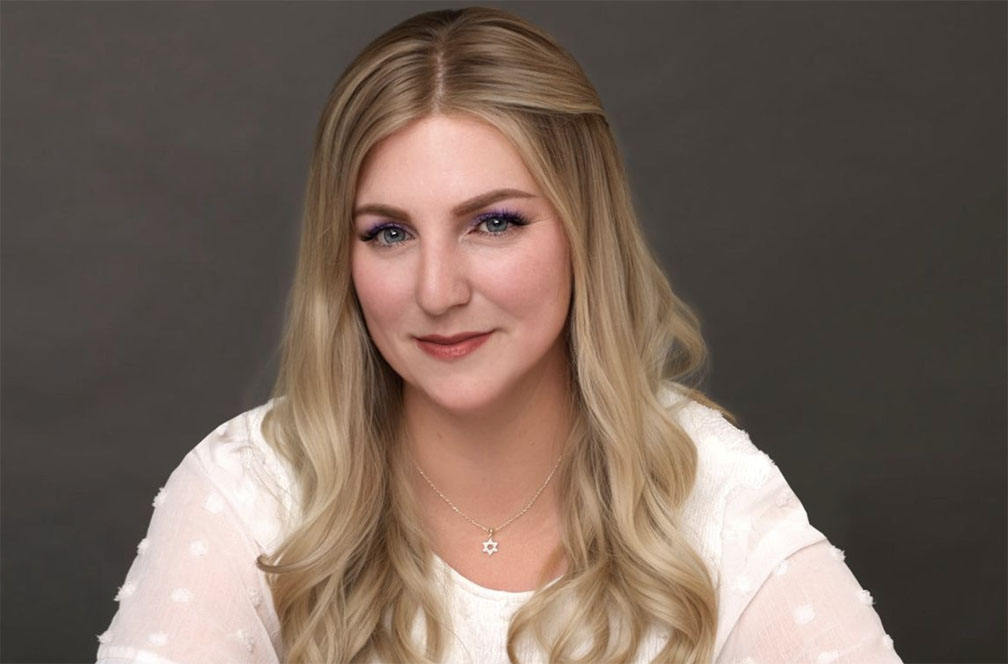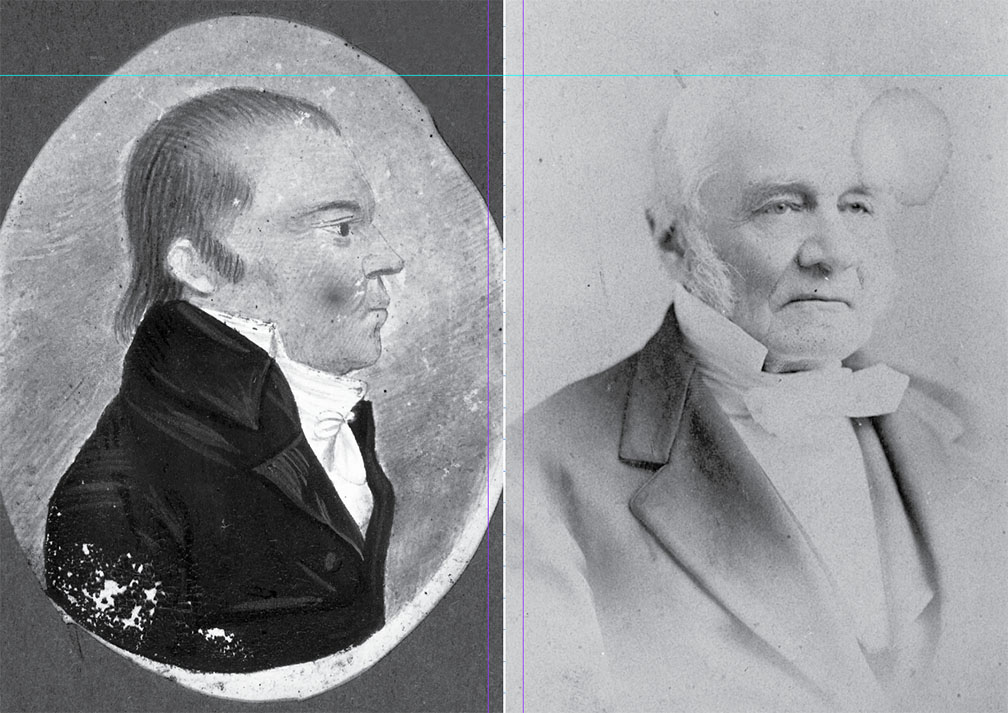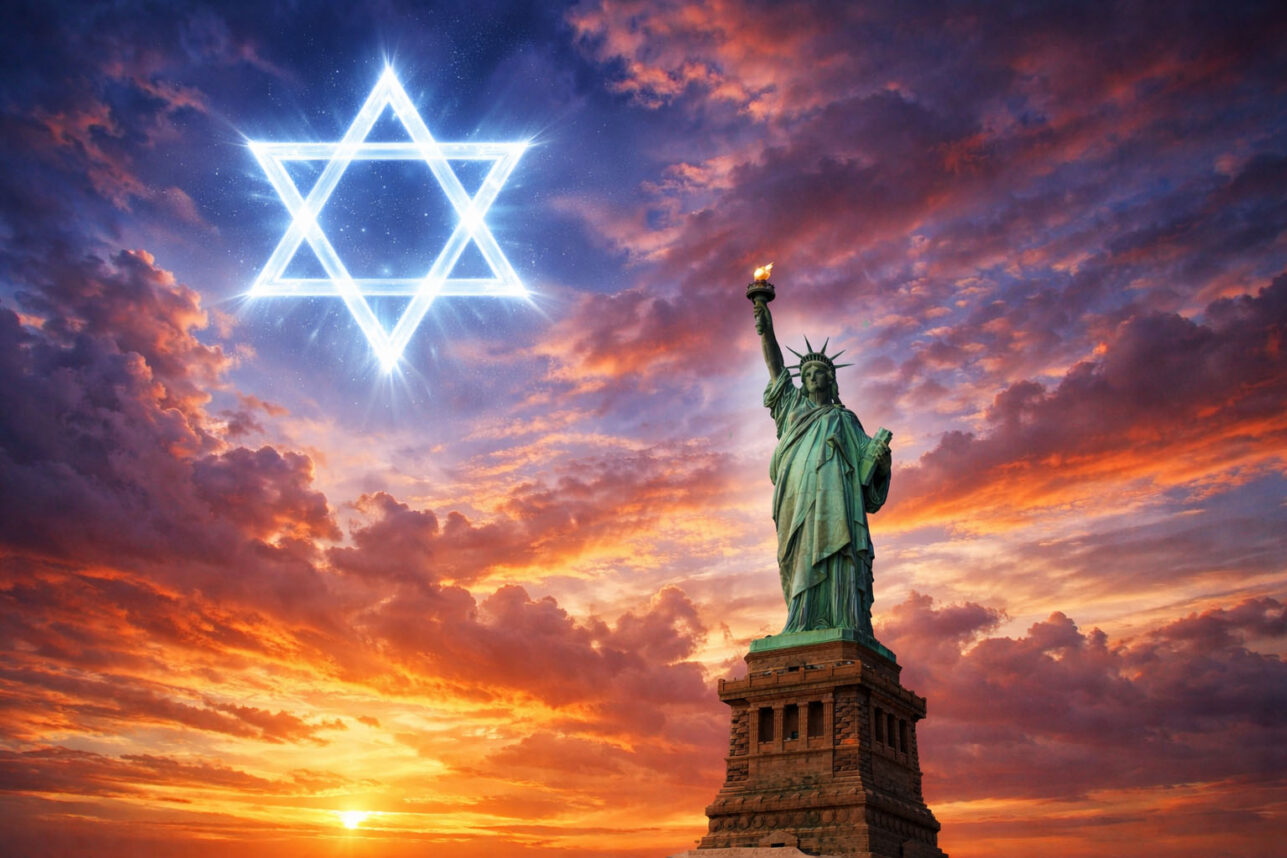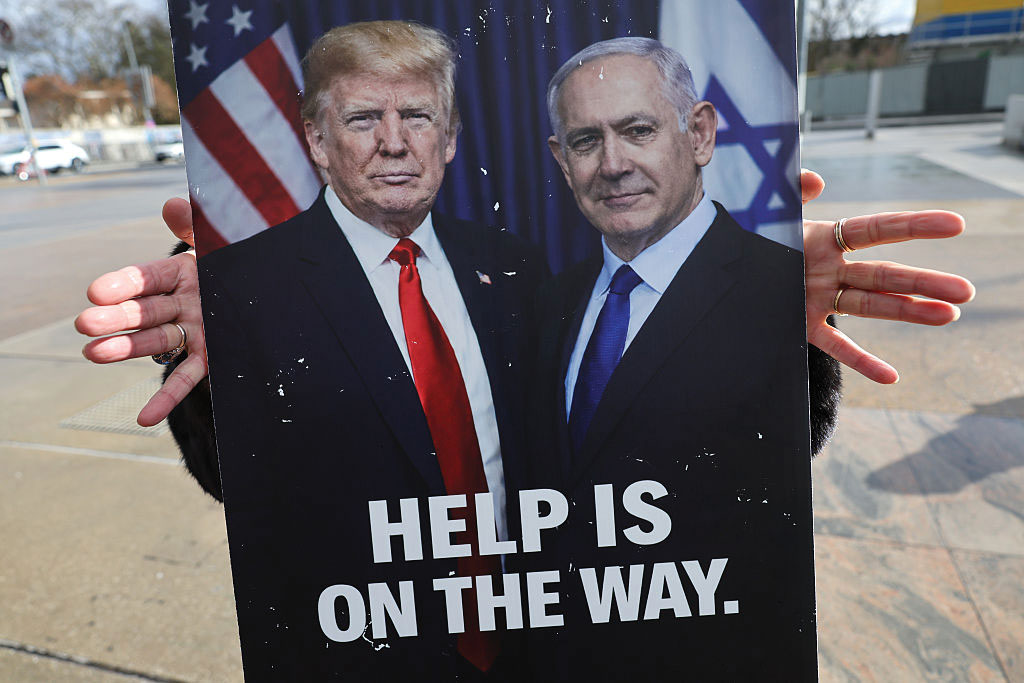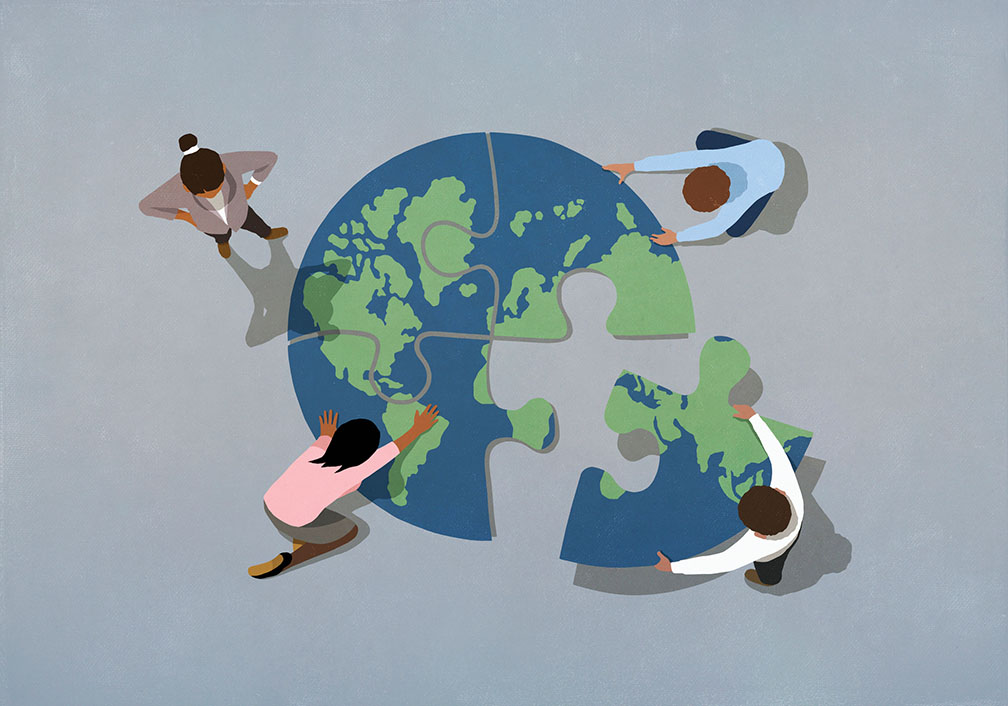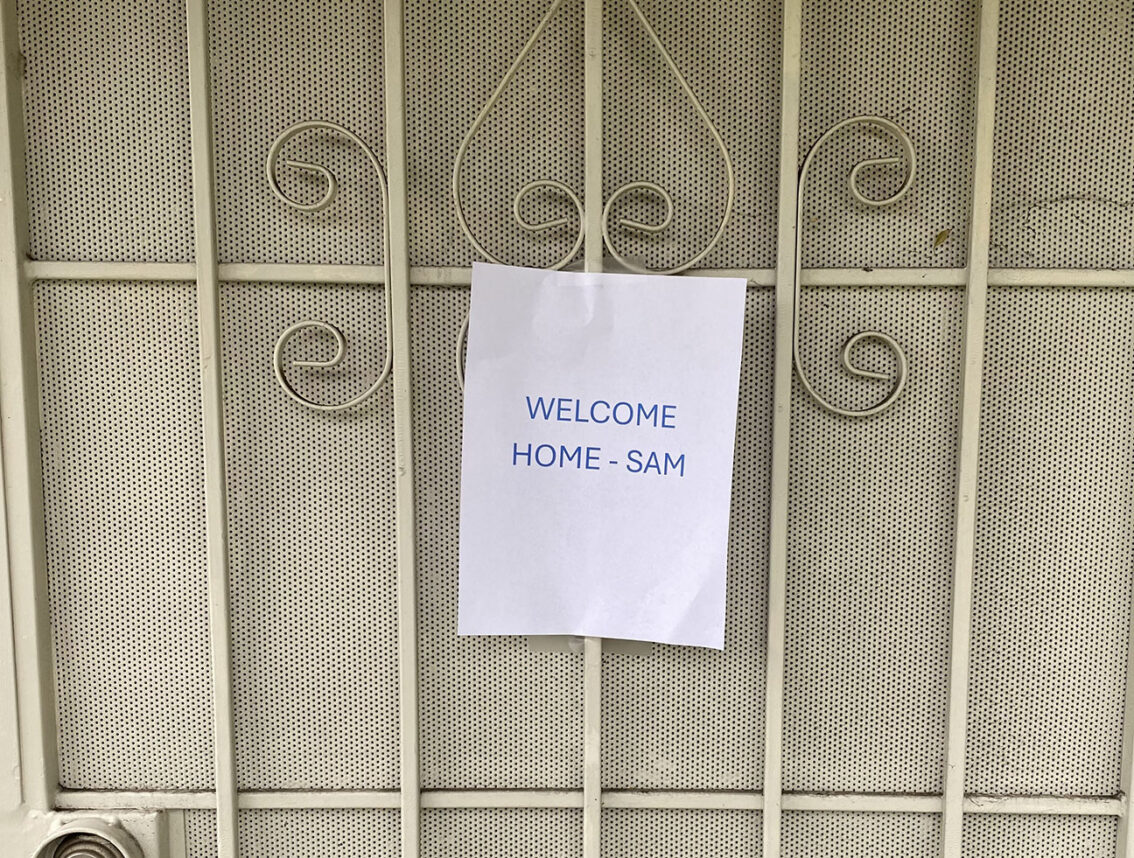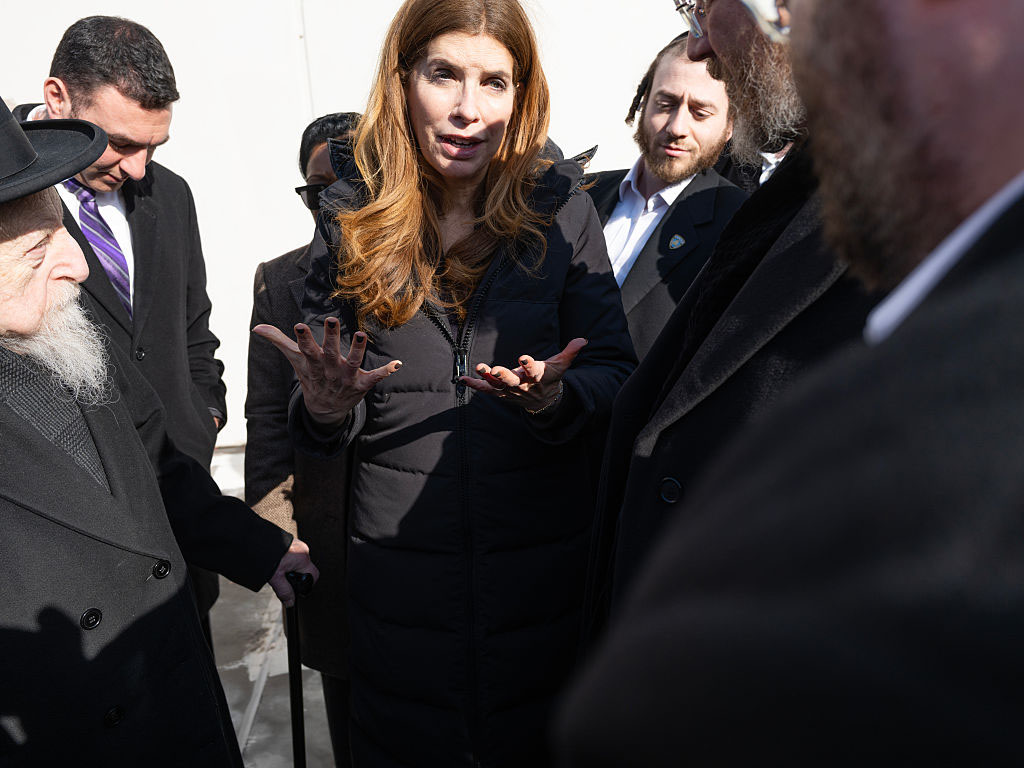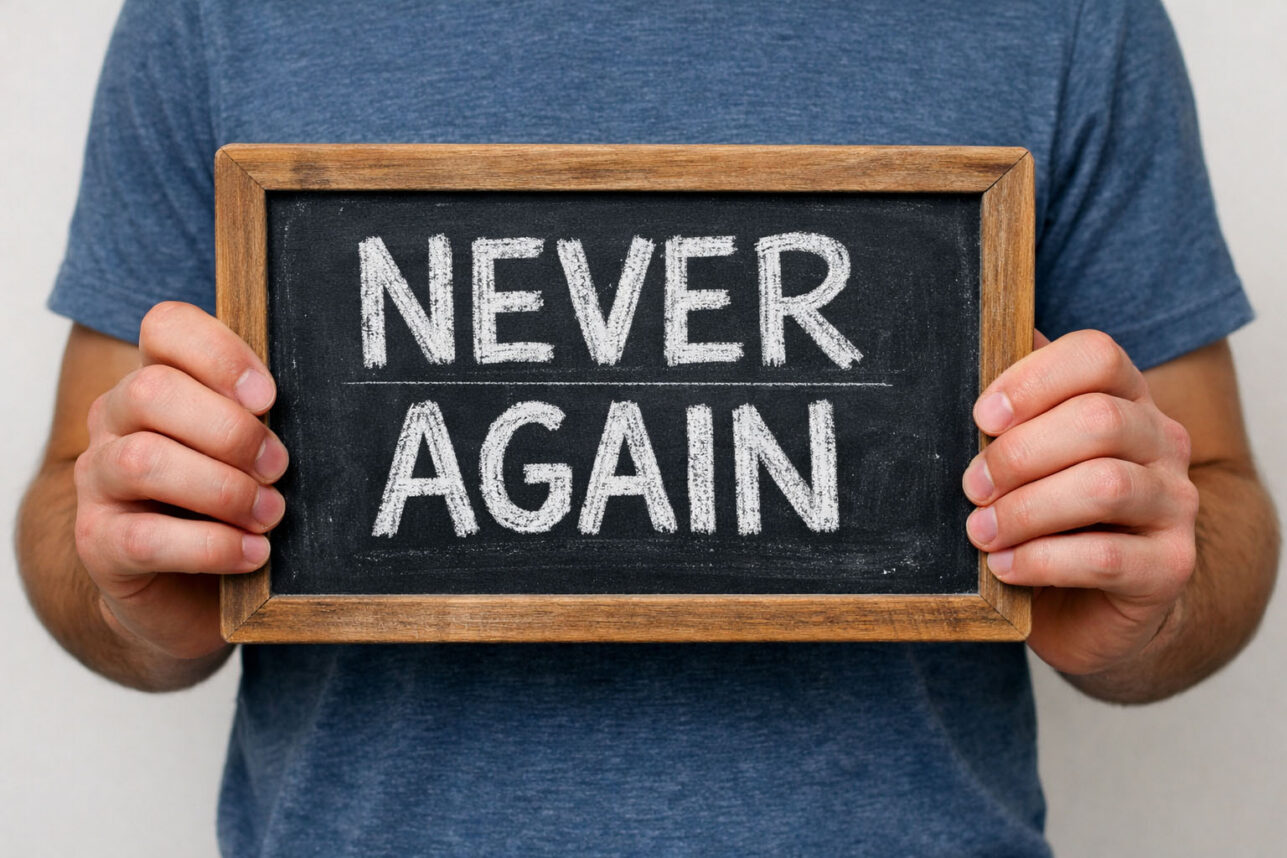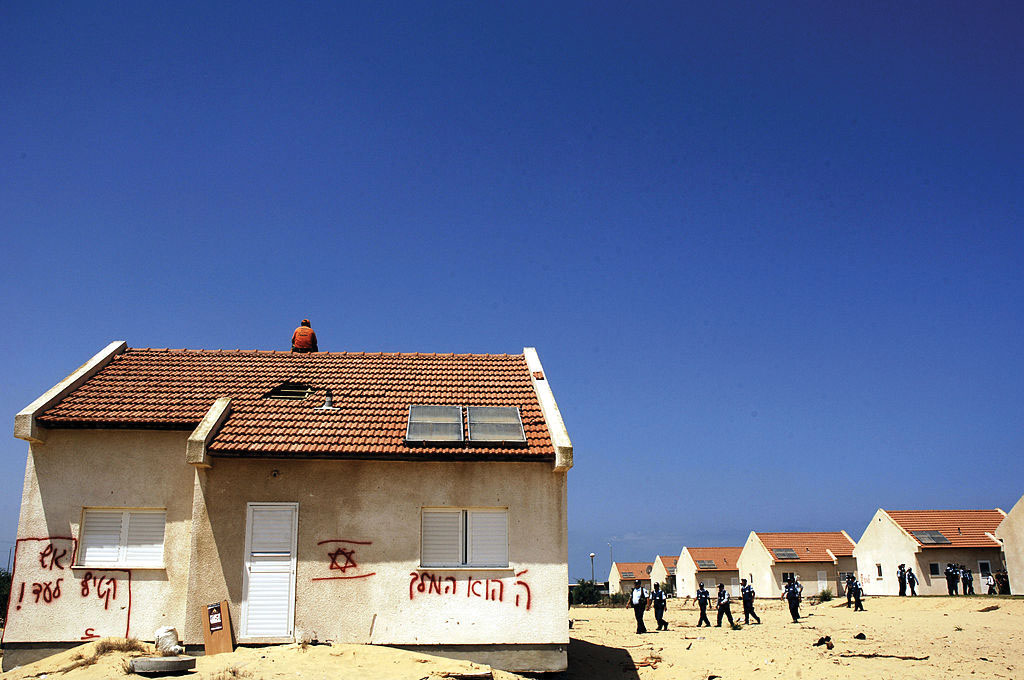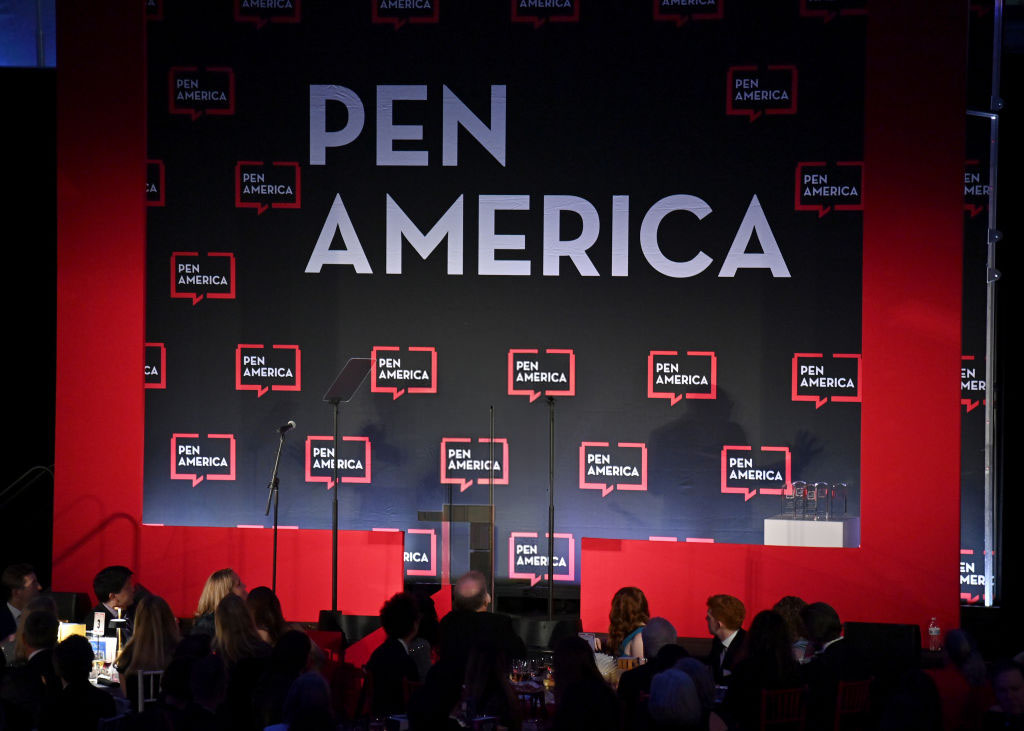
On a cold Tuesday morning, in a relatively anonymous west London hotel, a little bit of history was made.
It’s not unusual to see veiled or head-scarved women in this area, or prosperous men gathering in the Millennium Gloucester hotel’s lobby, all obviously Middle Eastern in origin. But it is almost certainly the first time that the men and women from the Arab world, gathering in this hotel, had such striking things to say about their countries’ fractured relationships with Israel and Jews — not least condemning the boycott, divestment and sanctions (BDS) movements — and how to go about mending these broken bridges.
Thirty people from all walks of civil society, from 15 Arab countries, took part in the creation of a new body, the Arab Council for Regional Integration. Their mission is one of “peace and love and friendship,” whose aim is to repair relations with the Jewish state.
In any other setting, the gigantic indoor palm trees shadowing the table for the council’s deliberations might have been deemed incongruous. But somehow they felt right: a touch of home for the delegates, who came from Arab countries ranging from Algeria to Yemen.
Each of the participants had been invited by the incentive of the U.S.-based Center for Peace Communications (CPC), whose board of directors is headed by veteran Middle East peace negotiator Dennis Ross. The CPC describes itself as “a group of Americans who believe that security and prosperity in the Middle East and North Africa require a peace between peoples.” Joseph Braude, the co-convener of the conference, is a senior fellow at the Middle East Program of the Foreign Policy Research Institute in Philadelphia, and is CPC’s founder and president.
No Israelis were present because some of the delegates could have been subjected to prosecution in their home countries for the “crime” of normalizing relations. It was clearly, Braude said, “a civil initiative in which no government had a hand,” but the views expressed are bound to resonate throughout the Middle East.
Not all the participants knew one another before the intensive two-day conference, but as Saida Agrebi, a Tunisian women’s rights and peace activist who lives in France, declared: “I now feel I have known you all my life.”
Without a doubt, many of those present were taking a real risk in attending the conference. Two important religious figures, Hassen Chalghoumi, a Paris-based Tunisian cleric, and Lebanese imam Saleh Hamed, each had faced serious personal security issues, including death threats, in order to attend.
Others — who work in arts or media — are frequently at odds with the public pronouncements taken by their governments. The views expressed — and the reason for the invitations — have been aired in private and behind closed doors for the past several years. What made this conference so different was that for the first time, the radical opinions were being expressed in public.
Two opening presentations electrified the listeners: one from the urbane Muhammed Anwar el-Sadat, nephew of the late president who signed the first peace treaty with Israel; and the other, a passionate address by former Kuwaiti information minister Sami Abdul-Latif Al-Nisf, outlining the “mistakes” made by the Arab world in dealing with the Jewish state.
The Egyptian politician, who lives in Heliopolis, heads the Reform and Development Party in Egypt’s parliament. His lecture looked at the frequently deplored “cold peace” that exists between Egypt and Israel, and also between Jordan and Israel. His conclusion was that the peace treaties essentially failed because of “the absence of any serious thought about how to integrate the Israeli, Egyptian and Jordanian populations into the implementation process. “In short,” he said, “too little thought was given as to how to turn a peace of the elites into a peace of the peoples.”
Sadat’s analysis does not let Israel off the hook in the way it is perceived by Egyptian citizens. He cited what he calls human rights infractions and continuing sporadic violence against Palestinians, saying, “It is fair to conclude that most Egyptians resent Israel, doubt its credibility and find it hard to trust. Not all of these attitudes are fair-minded and based on actual Israeli misdeeds, but enough are to credit the sentiment.”
However, he added in a passage rarely heard anywhere except in Israel, that “the revived tendency toward demonizing Israelis and Jews in general in Egypt” needs to look at the role of the Egyptian media.
Sadat said, “Television shows and newspapers of all persuasions continuously depict Jews as inherently evil. Using their influence, Egyptian media, backed by the government, have installed fear and paranoia in the heads of the population, and have driven a wedge between the populations of the two countries.”
But despite all its flaws, Sadat appeared convinced that the Egyptian-Israel peace treaty is worth saving, saying, “We … have to do whatever it takes, whatever works, to prevent the Egyptian-Israeli peace, such as it is, from backsliding, and to urge it forward to fulfill its promise. If that means involving neutral actors to enforce humanitarian law, so be it. If it involves shielding the peace-making process from partisan electoral excesses by enforcing the law more vigorously and consistently, so be it. If joint NGO (nongovernment organization) projects and partnerships will help, let’s fund them and get them operational. The only way to build trust as the foundation for true peace is to give as many people as possible a concrete and visible stake in the process. Incorporating grassroots energies has to become our No. 1 operational priority.”
If the Egyptian member of parliament’s address set out some difficult home truths for his listeners, the presentation by Kuwait’s Al-Nisf, was a coruscating litany of “mistakes” committed by the Arab world in its dealings with Israel.
The former minister, who lives in Kuwait City, gave a no-holds-barred presentation. Many of his targets overturned what have been conventional arguments in the Arab world for years as to why the Israel-Palestinian conflict had not been resolved.
Al-Nisf, whose chocolate-brown, flat leather cap seemed to lend extra vehemence to his speech, had plenty to condemn. It was, he said, “a mistake to insist on Israel’s being a racist apartheid state when it clearly is not. At the beginning of their immigration to Palestine, Jews did not treat Arabs as whites treated the indigenous peoples of America, South Africa and Rhodesia. There have never been segregated public facilities in Israel, nor any question of basic democratic rights being denied to Arab citizens of Israel. Enough of this ridiculous charade.”
Palestinians, he said, had made “a huge mistake” in focusing “labor activity on the dissemination of hate speech instead of investing in professionals such as doctors, engineers, lawyers and teachers.”
He warned: “It is better to raise peaceful and educated Arab generations that have no problem with Israel, and who may even prefer to study in Israeli universities and get treatment in Israeli hospitals, than it is to raise hateful, frustrated people who will wreak violence and harm in their own societies.”
The Arab world, he said, “cannot achieve the regional integration we need unless we first put aside the Arab-Israeli conflict, and we cannot do that until we stop thinking about it in a zero-sum mode. This would be no favor to ‘the Jews.’ This would be a favor to ourselves.”
He went on to say it had been a mistake to “keep Palestinian refugees in camps for 70 years in Syria, Lebanon, Jordan, the West Bank and Gaza as a means of spiting Israel, at the expense of the misery and suffering of the Palestinians. This was not the case in similar migrations, where immigrants were able to integrate into new communities without forgetting their grievances. In Kuwait, we hosted half a million Palestinians who lived among us, rather than in refugee camps, and even naturalized some, without doing harm to their cause.”
“[It is] a mistake to insist on Israel’s being a racist apartheid state when it clearly is not. … There have never been segregated public facilities in Israel, nor any question of basic democratic rights being denied to Arab citizens of Israel. Enough of this ridiculous charade.”
— Sami Abdul-Latif Al-Nisf, Kuwait
He also said that insisting on “the impossible Right of Return for all those with official refugee status, the vast majority of whom have never seen or lived in Palestine at all,” was yet another error, as was a “lurid mistake” on the Palestinian side “to believe that the ends justify the means, and so to show no regret about hijacking of planes, ships and buses, bombing of airports and embassies, and in general murdering innocents through terrorist attacks. Other liberation movements, such as in Algeria and South Africa, did not privilege such methods, and those Palestinian organizations that did — from Abu Nidal’s to George Habash’s — have never been criticized publicly for the harm to the Palestinian cause they wrought.”
Not mincing his words, the Kuwaiti said it was “ludicrous that major anti-Israel writers write about the Palestinian issue without themselves ever visiting the West Bank, Gaza and Jerusalem, and that anti-Israel editors publish such unprofessional tripe anyway.”
He added: “It is a mistake that no Palestinians ever dared raise the question in public of what might be if a rich, civilized, democratic Palestinian state in the West Bank arose instead of a backward, rump semi-state seething with hatred and filled with warring militias.”
A third paper, which could be said to have set a benchmark for the new Arab council, was a forensic analysis of BDS, given via video link by London-based Egyptian lawyer Eglal Gheita, who serves as legal affairs adviser for the council.
Successive boycotts of Israel and its people, she said, have strengthened both while doing incalculable harm to Arab countries. It was “time to move forward to a post-boycott region.”
Examining the history of different kinds of anti-Israeli boycotts, Gheita said, “One might think that given such a track record compiled over more than half a century, the illogic of boycotting Israel would have become clear. Not so. While a rising tide of Arab elites and youth have come to reject the boycott and call for direct civil relations with Israel, a new, predominantly foreign coalition of far-left activists, Islamists and hardline Palestinian factions consolidated the boycott, divestment and sanctions movement.”
She said, “The BDS movement, unable to marshal unified Arab state support for its programs, has put a premium on trying to attract international governmental and NGO support, predominantly from left-wing quarters. The original boycott was explicit about its aim of extirpating Israel as a Jewish state; the BDS movement on the whole maintains the same aim, but obscures it by referring only to the ‘right of return’ for Palestinian refugees, apparently in order to appeal more effectively to global audiences.”
In any event, she said BDS has failed in its aim to make an economic impact on Israel, “largely because of the specific nature of Israeli-Western economic exchanges. Unlike many of its Arab neighbors, whose economies are dominated by commodities that can be easily substituted from alternate suppliers, nearly 60 percent of Israeli exports are what economists classify as ‘differentiated goods,’ meaning they cannot easily be substituted by consumers. This is particularly the case in the technology sector. As one observer noted, ‘View a video of a BDS rally, and there’s a fair chance the footage was taken on a device that utilizes Israeli technology: The boycott is broken before it begins.’ ”
The boycott, Gheita told delegates, had done “enough damage already,” preventing Arab countries “from gaining the benefits of partnership with Israelis. It has impeded Arab civil society from exercising a positive influence on Israelis and Palestinians alike by way of friendship.”
“One might think that given such a track record compiled over more than half a century, the illogic of boycotting Israel would have become clear. Not so. While a rising tide of Arab elites and youth have come to reject the boycott and call for direct civil relations with Israel, a new, predominantly foreign coalition of far-left activists, Islamists and hardline Palestinian factions consolidated the boycott, divestment and sanctions movement.” — London-based Egyptian lawyer Eglal Gheita
She laid out a series of recommendations for the Arab Council for Regional Integration to pursue in repudiation of the boycott — and said BDS should be challenged, “by explaining through our own banners and slogans that Arabs are the boycott’s first — and only — victims.”
Aside from the overtly political presentations there were a series of “softer” discussions, including dialogue about how music and art could reach from the Arab world to Israel. Praise was even given to Israeli singer Netta Barzilai, the 2018 Eurovision winner, whose part-Moroccan heritage was mentioned with pride.
Other notable contributions were the numerous personal stories about good relations with Jews, and a plea from several participants for Jews to return to Arab countries and work there for reconciliation.
Sanaa Wajid Ali, a doctoral researcher from Iraq now based in Germany, said she left Iraq when she received a scholarship to study in Berlin. Money was extremely tight, but she made a Jewish friend who asked her to be her flatmate. “My experience with Jews was extremely positive,” she said. “She supported me and I suppose you could say symbolically adopted me. My relationship with her was stronger than with some of my own family.”

Palestinian peace activist and academic Mohammed Dajani, who shocked the Arab world by taking a group of his students from Al-Quds University to Auschwitz in 2014 — and lost his job as a result — was once a member of Fatah who went to study in the United States. “Even in America, I avoided Jews” and was “totally against any interaction with Jews,” he said. But he dramatically changed his mind when his father was treated in an Israeli hospital for cancer. He was not treated as an Arab or a Muslim, he said, but “as a patient” at Jerusalem’s Hadassah Ein Kerem hospital, and for the first time, Dajani “saw the Other” in Israel.
As more and more contributors spoke of their personal relations with Jews — and a large number regretted the loss of Jews in different Arab countries and called for their return — Dajani suggested that such personal recollections should be collected and published “throughout the Arab world.” One delegate from Tunisia spoke wistfully of the hemorrhaging of Jewish musicians from the Arab world, particularly from his country, Algeria and Iraq.
Extremism and terrorism were deplored, and concern expressed about “brainwashing” of children in school and of students at university level; and, remarkably, from clerics Chalghoumi, a condemnation of the “politicization” of Islam, and from Lebanon’s Hamed, a plea to Europe to crack down on the number of mosques in which imams were preaching hatred.
Sudanese delegate Ibrahim Sayyid Ahmed called for “community dialogue” projects to connect Israelis and Arabs far beyond the realm of traditional “people-to-people” efforts. He said, “Who will promote the dialogue the region needs? It is not necessary for civil actors to start from scratch: Serious efforts have already begun in this realm, thanks to myriad Arab, Israeli and Western organizations.”
He highlighted what he felt was a remarkable development, the American-based “Kivunim” — devoted to “Building World Consciousness” — which has formed a network of human bonds through youth dialogue, spanning America’s Muslim, Christian and Jewish communities; Arab North Africa; Israel; and elsewhere.
He added, “Both in Israel and the Palestinian areas, interfaith NGOs have begun to bring people together on the basis of their common humanity and shared faith. A world of untold possibility lies in store for these and other initiatives. I believe that Arab countries farther afield, long considered off-limits to international networks of bridge-building, will soon become a part of them.”
In a video link from Washington, D.C., Ross told the participants that their deliberations “would have been wonderful if they had happened years ago,” but nevertheless he welcomed the initiative. He said, “You represent the voices who say enough. The more voices like yours who are prepared to speak out, the more you will build your voice [in talking] with Israel, and the more you will influence Israel’s leaders. You represent a ray of hope. It is a courageous endeavor but also the right endeavor, and I am inspired by your example. You know you are on the right path.”
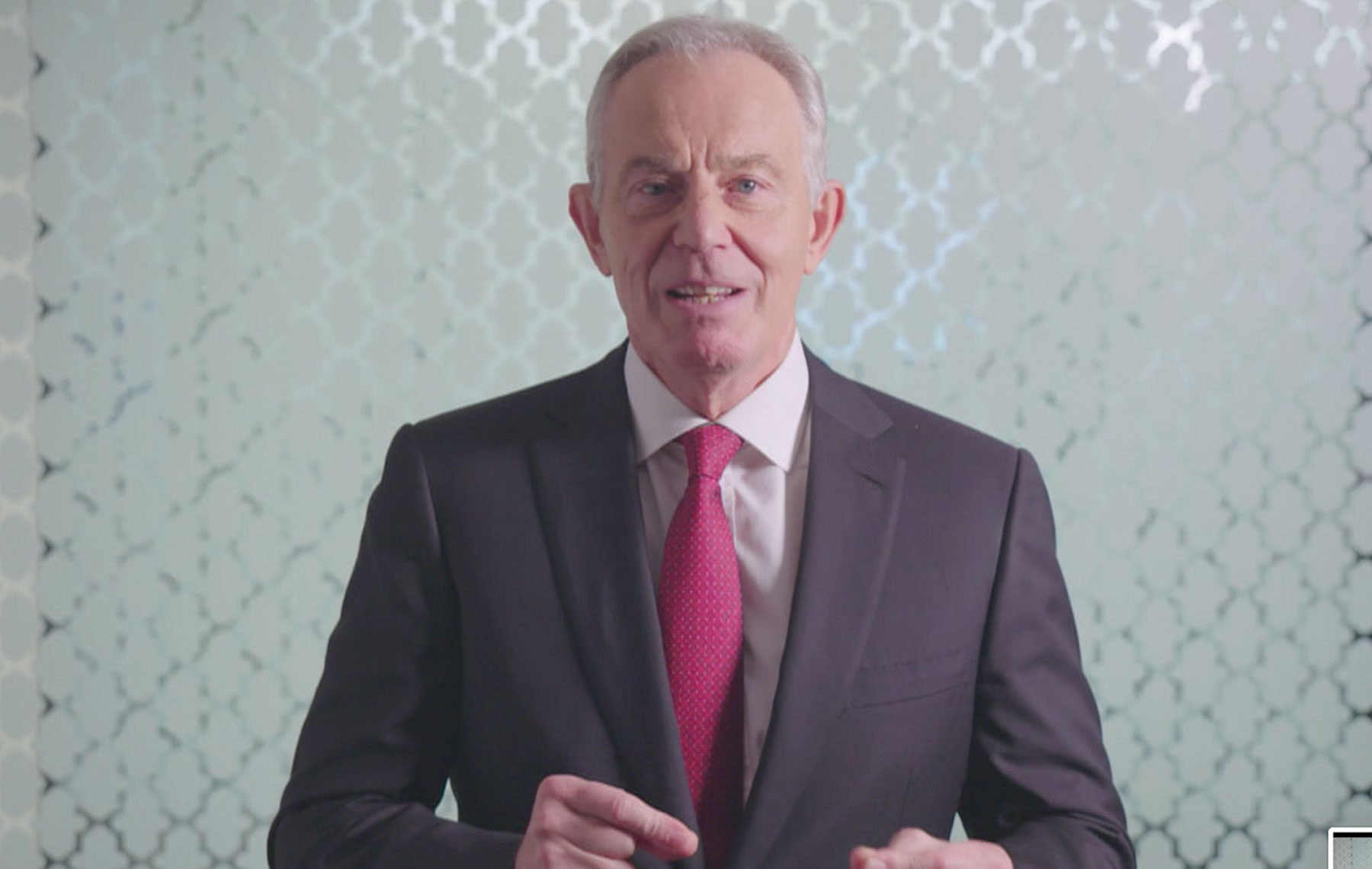
Former Middle East envoy and British Prime Minister Tony Blair made a surprise appearance by video link at the conclusion of the event to commend the conference and its aims.
In its founding statement, read by British peace activist Simon Rufus Isaacs, the delegates said they sought “to support every effort to strengthen peace, coexistence and reconciliation as well as integration among the countries of the region.”
To benefit their countries, they said they wanted to “break the barrier of boycotting within the region — in particular, the Arab boycott of Israelis — which hindered partnership in technology, medicine, infrastructure, business, economy and the expanse of human aspiration.”
The boycott, they said, “also stymied hopes for peace between the Israeli and Palestinian peoples. Prevented from engaging either of the two peoples directly, Arabs were unable to cultivate ties that could have enabled us to foster conciliation and compromise on both sides. In sum, the boycott increased the suffering of our societies and weakened our capacities.”
But the delegates, while applauding “the emergence of fair, level-headed voices calling for change” in the Middle East, also acknowledged “a range of actors, both within the region and outside it, [who] have been applying pressure to intensify the culture of exclusion and spread hate. … These tragic campaigns have arrested development, prosperity and progress in Arab nations, led to the spread of terrorism, extremism and economic collapse, and hindered national reconciliation and economic peace.”
Braude told the Journal that the gathering had been “an opportunity for voices that share the same convictions but had been denied an organizational platform to express them.”
The council is now establishing a series of dedicated committees for arts, politics and a separate social media platform, and plans another meeting in Washington, D.C., in two months to review progress.
Corrections: This article has been updated to include that Joseph Braude is the co-convener of the conference; that his work at the Foreign Policy Research Institute is in Philadelphia; and that Saida Agrebi is from Tunisia.
Jenni Frazer is a London-based freelance journalist and former assistant editor of London’s Jewish Chronicle and its bureau chief in Israel.









